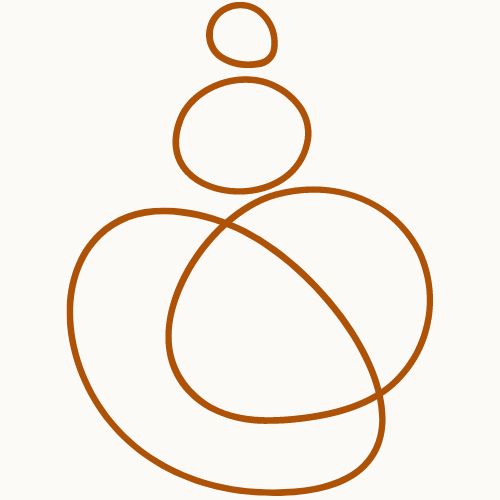Stephen Covey’s 1989 book is a classic in the field of personal development and leadership. It offers a principle-centered approach to effectiveness in both personal and professional life. Covey argues that true effectiveness comes from aligning with timeless, universal principles rather than relying on quick fixes and the pursuit of temporary success. For this, he outlines the following 7 habits, later adding an 8th:
Habit 1:
Be Proactive – Take Control of Your Life
You always have a choice: You can’t change external circumstances, but you can change how you respond to them. Focus on what’s within your influence and take responsibility for your actions, rather than blaming others or situations.
From reactive to proactive:
- Focus on what you can influence (your mindset, behavior, choices).
- Adjust your language: don’t say “I have to,” but rather “I choose to.”
- Stop reacting on autopilot – Act consciously: create deliberate space between stimulus and response.
Habit 2:
Begin with the end in mind – Live and work with a vision
What do you really want? Define success on your own terms, not based on what others expect. A clear vision provides direction for your choices and ensures that you focus on what truly matters.
From distracted to goal-oriented:
- Create your compass – Write a personal mission statement that reflects your core values and goals.
- See the end result – Visualize where you are heading and make your goals tangible.
- Let your agenda follow your vision – Ensure that your daily choices contribute to your long-term goals.
Habit 3:
First things first – Focus on what truly matters
Work smarter, not harder. Once you have a clear vision, focus your time and energy on what truly makes an impact. This requires self-discipline, good planning, and the courage to say no.
From busyness to goal-oriented work:
- Prioritize wisely – Work on what’s important first, not just what feels urgent.
- Do less, achieve more – Focus on the 20% of your actions that yield 80% of your results.
- Protect your time – Be selective about what you say “yes” to.
Habit 4:
Think win-win – Grow together instead of competing
Success is not a competition. Effective people look for solutions that benefit everyone, rather than thinking in terms of winning or losing.
From competition to collaboration:
- Think abundance – The success of others does not mean your loss.
- Collaborate, don’t compete – Negotiations and relationships are about creating value, not conflict.
- Build trust – Win-win thinking strengthens relationships and opens new opportunities.
Habit 5:
First seek to understand, then to be understood – Listen with intention
Listen to understand, not to respond. Effective people take the time to truly listen before sharing their own perspective. This creates mutual understanding and strengthens relationships.
From shallow to deep listening:
- Listen to the intent behind the words – Understand the emotions and meaning before formulating a response.
- Put yourself in the other person’s shoes – Instead of convincing, ask, “How do you see this?”
- Avoid “I-stories” – Don’t filter the conversation through your own experiences.
Habit 6:
Create synergy – The power of collaboration
Together, you go further than alone. Great successes arise when people leverage differences instead of fighting them. Synergy means that the final result is greater than what each individual could have achieved.
From compromise to synergy:
- Diverse perspectives enrich the solution – Differences of opinion lead to better ideas.
- Differences are an opportunity, not a problem – Use everyone’s unique talents to foster innovation.
- Seek a third alternative – Not “your” or “my” solution, but something better than both.
Habit 7:
Sharpen the saw – Keep growing and renewing
Sustained growth leads to sustained success. To remain effective, you must regularly invest in your body, mind, emotions, and soul. Covey compares this to a lumberjack who sharpens his saw: those who don’t recharge lose their effectiveness.
Four pillars of renewal:
- Physical – Exercise, healthy nutrition, sleep, and relaxation.
- Mental – Reading, learning, and critical thinking.
- Emotional/Social – Strong relationships and emotional balance.
- Spiritual – Reflection, meditation, and living according to your core values.
Habit 8:
From effectiveness to greatness
True leaders not only live and work effectively, but also inspire others. They discover their unique strength and use it for a greater purpose. This requires authenticity, courage, and a deep connection to your mission.
- Live and work from your unique voice – what is your true strength?
- Stimulate and develop potential in others – are you an inspiration?
- Make an impact from authenticity – are you living your mission, or following the crowd?
Effectiveness is valuable, but greatness arises when you follow your deeper calling and help others do the same.
Self-reflection
for the integration of all habits:
- Which habit am I already applying well?
- Where do I have the greatest opportunities for growth?
- What is the one habit that, if I applied it consistently, would improve my life the most?
Do you want to not only understand these principles but truly integrate them into your daily life? Discover how with mind management, Kundalini yoga, and coaching, you can elevate your balance to a higher level. And lead from your authentic Self. Join Master Your Mind, Master Your Life, the program for inner authentic leadership!
Let’s work together on sustainable growth and leadership from inner strength!
#PersonalMastery #Leadership #Effectiveness #Mindset #SelfDevelopment #Covey


